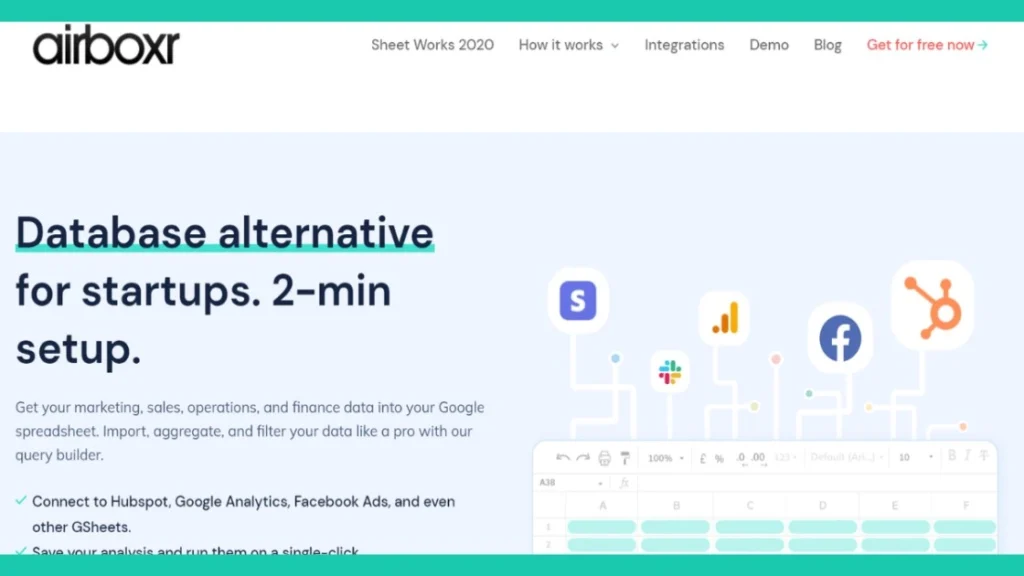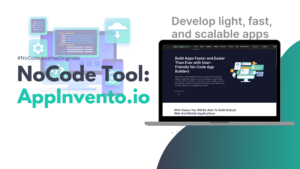Why Is NoCode Gaining Traction
- Manish Balakrishnan
Meta description: NoCode gains traction as it’s accessible to citizen developers, seasonal developers, and businesses.
In this blog:
- Introduction
- What is NoCode?
- Rise of Citizen Developers
- Developer VS NoCode Platforms
- NoCode In Enterprises
- Room to Grow
NoCode is quickly gaining traction within the non-technical community and is going mainstream at large enterprises too.
In an increasingly digital world, the demand for efficient and accessible solutions to software development has never been greater. Traditional coding methods often present significant barriers to entry, limiting the potential for innovation and creativity among non-technical individuals.
However, there’s a glimmer of hope on the horizon – NoCode. This revolutionary approach to software development is rapidly gaining traction, offering a viable alternative to traditional coding methods. But why exactly is NoCode experiencing such a surge in popularity? What are the driving forces behind this industry’s meteoric rise?
In this article, let’s tackle the basics of why NoCode is gaining traction. And examining the key factors contributing to its widespread adoption. From its ability to democratize software development to its potential to transform entire industries.
We’ll explore the multitude reasons behind NoCode’s ascent. Whether you’re a seasoned developer or a curious enthusiast, we can unravel the mysteries behind the rise of NoCode.
What is NoCode?
In the industry of software development, NoCode and LowCode platforms have emerged as revolutionary solutions. To democratize app creation and streamlining the development process for non-technical individuals. It’s visual app development interfaces and drag-and-drop tools feature.
As a response to the complexities of traditional coding, NoCode was the discovered alternative. NoCode platforms empower users to build sophisticated applications without writing a single line of code. It was a success to tech innovators seeking to bridge the gap between ideas and execution.
Today, NoCode and LowCode platforms offer a variety of solutions. To build application development for workflow automation, ushering in a new era to access the innovation in software development.
Within the industry, two opposing views have emerged regarding the future of NoCode technology: Tech NaySayers VS NoCode Maximalists
On one front, Tech NaySayers foresee NoCode’s demise as a mere trend. And predicting a return to conventional coding practices once the initial hype subsides. They argues that NoCode platforms are mainly the limited in their scope. It’s suitable only for basic projects like web apps and landing pages, and with complex endeavors entail manual code.
Conversely, NoCode Maximalists remain bullish on the potential of NoCode, viewing it as a burgeoning field with untapped potential. Envisions a future where NoCode flourishes with new products. Tools ceaselessly evolving to meet diverse needs, propelling the technology to greater heights in the years ahead.
We wholeheartedly support the second viewpoint. This position not only appears rational but also appears inevitable. Particularly considering our commitment to maintaining a leading digital platform for news and fact-checking, known as “NoCode Journal”.
Rise of Citizen Developers
As NoCode gains traction, a new term emerges: Citizen Developers. These individuals are often non-tech enthusiasts and users. NoCode platforms empower citizen developers to engage in app development and generate inventive solutions.
Citizen Developers leverage their creativity and vision to bring projects to life without traditional coding skills. As this trend continues to rise, it highlights the changes of technology. The expanding opportunities for individuals from diverse backgrounds to contribute to the digital landscape.
The NoCode community is invaluable, and currently, it’s a topic of widespread discussion. Another opportunity presented by NoCode is the ability to engage with the global NoCode Community. The community shares a common drive for innovation. Also a shared goal of realizing ideas without the necessity of traditional coding expertise.
Citizen Developers with the ability to build in public and leverage NoCode platforms to deploy various codeless projects. Such as websites, mobile apps, automation workflows, and more. The community fosters collaboration, creativity, and empowerment, empowering individuals from all backgrounds to turn their visions into reality
NoCode platforms increased the pool of app buiders. Making it more viable for anyone with a good idea and execution chops to be a technology product maker. When you look at coding skill sets, the practitioners are not as diverse as the community we live in. And NoCode tools sort of levels the playing field enabling a much varied and vibrant collection of makers.
The Traditional Developers VS NoCode Platforms
The debate surrounding professional developers versus NoCode platforms has sparked intense discussion within the tech community. With the rising popularity of NoCode tools, there’s a question looming. Will Developers face imminent replacement? To code or No Code?
Seasoned developers, adept at coding complex applications from scratch, may feel apprehensive about the emergence of NoCode platforms. NoCode has a profound impact on developers’ jobs, reshaping their roles and responsibilities in several ways. While some may fear that NoCode will render developers obsolete, the reality is quite different. Instead of replacing developers, NoCode tools complement their skill sets and streamline certain aspects of their workflow.
Firstly, NoCode allows developers to focus on more complex and strategic tasks. By automating routine coding tasks and simplifying the development process. For certain applications, developers can allocate more time and energy to tackling challenging problems, optimizing performance, and enhancing user experience.
Secondly, NoCode encourages collaboration between developers and non-technical stakeholders. With NoCode platforms, individuals from various departments can contribute to the development process, providing valuable insights and feedback. Developers serve as guides and mentors, ensuring that projects adhere to best practices and technical standards.
Moreover, NoCode fosters innovation within development teams. It empowers developers to experiment with new ideas rapidly, test hypotheses, and iterate on prototypes without investing significant time in coding. This agility accelerates the pace of innovation and enables teams to respond quickly to changing market demands.
Developers still play a vital role in crafting intricate and custom applications that require advanced functionalities. As the landscape evolves, collaboration between developers and NoCode platforms may become the new norm. Not only fostering innovation but also efficiency in app development.
NoCode In Enterprises
As the tech landscape evolves, enterprises is increasingly turning to NoCode and LowCode development apps to streamline their operations. These innovative solutions offers efficient alternatives to traditional coding methods. Allowing organizations to accelerate their digital transformation initiatives while empowering teams to create sophisticated applications without extensive technical expertise.
In traditional technology, the process of developing apps typically involves several steps, starting with gathering requirements. Followed by designing the user interface, writing code, testing, and finally deploying the application. This process often requires specialized technical skills, extensive coding knowledge, and can be time-consuming.
However, with NoCode development, the process is streamlined and more accessible. Users can leverage intuitive visual interfaces and drag and drop tools to design and create applications without writing code. This means that individuals without coding expertise can participate in app development. It speeds up the process and reducing the reliance on technical specialists.
Additionally, NoCode platforms often include built-in features for testing and deployment. Further simplifying the process and allowing for rapid iteration and updates.
NoCode offers several benefits to enterprises on a day-to-day basis:
Faster Time-to-Market: NoCode allows enterprises to develop and deploy applications much faster compared to traditional coding methods. This agility enables companies to respond swiftly to market demands and changes, staying ahead of the competition.
Reduced Dependence on IT: With NoCode platforms, business users can create and modify applications. Even without relying heavily on IT departments. This reduces the backlog of IT requests and empowers teams to innovate and iterate without assistance.
Reducing Cost: By removing the need for extensive coding expertise and reducing development time, NoCode solutions can significantly lower development costs for enterprises. This cost-effectiveness makes it feasible for companies of all sizes to leverage technology for growth.
Increased Productivity: NoCode platforms offer intuitive interfaces and drag-and-drop functionalities, simplifying the app development process. This allows employees to focus more on their core tasks, leading to increased productivity across the organization.
Enhanced Collaboration: NoCode encourages collaboration between business users and IT departments. Business users can easily communicate their requirements and ideas. While IT teams can provide support and guidance, fostering a culture of teamwork and innovation.
When considering Enterprise applications, the functioning of IT departments, the conventional process tends to be slo-moving and methodical. One major hindrance lies is the time. It takes to introduce innovative products to the market within companies, with technology timelines often being the culprit.
NoCode addresses this challenge by offering visual development capabilities and minimizing the need for extensive involvement. Thereby significantly reducing time to market, particularly for ventures with uncertain market prospects. The NoCode playbook empowers businesses to experiment freely and enhances their capacity to outpace competitors through innovation.
Another prevalent concern within Enterprise IT teams revolves around the perpetual shortage of skilled developers to tackle IT tasks. NoCode comes to the rescue in this scenario. As the emergence of visual development tools has popularized the concept of citizen developers. Substantially expanding the talent pool capable of creating new products.
The pressing demand for rapidly built applications, coupled with the scarcity of developers. It surpasses the current supply, paving the way for the adoption of NoCode solutions.
Room to Grow
NoCode space are in their developing stages. With ample room for growth and development in both the ease of access of NoCode tools. The variety of products or projects generated through NoCode platforms.
- Some improvements in NoCode platforms can further democratize app development and empower users to create sophisticated solutions. Such as:
- The advanced functionality such as integrating machine learning and artificial intelligence. It would expand the range of applications feasible to develop without conventional coding.
- Enhancing customization options. The integration capabilities would enable users to tailor their solutions. From their specific needs and seamlessly connect with other tools and platforms.
- Performance optimization is crucial for handling larger datasets and improving application responsiveness.
- Comprehensive learning resources and collaboration features would support users in maximizing their proficiency and working efficiently within teams.
Regarding Citizen Developers, we are still in the initial stages. There is a need for more individuals who are completely non-technical to embark on building larger. With a greater availability of diverse products, a ripple effect will occur, attracting more Makers to the NoCode community.
On the enterprise front, we have yet to fully realize the potential of NoCode. While some older tools are performing LowCode tasks. The concept of pure NoCode, which involves working with legacy datasets and constructing core business function logic. It remains a distant goal.
The expected adaption for enterprises is with sales and marketing department. Before gradually extending to broader work and functional areas of businesses.
By addressing these areas, NoCode platforms can continue to evolve, making app development more accessible and fostering innovation across industries.
Regardless, it’s imperative not to misjudge the potential of NoCode and the possibilities it holds for our future.
NoCode Journal will remain committed to providing insightful coverage of emerging trends and developments in the field. Count on us to deliver objective reporting that keeps you informed and engaged. Stay tuned to NoCode Journal for the latest updates and analysis on the evolving landscape of NoCode technology.
Share
follow us

NoCode Tool: Genbu

Women In The NoCode Space – Edition 1

NoCode Tool: Unit21

NoCode Projects You Didn’t Know You Could Make
Explore related posts

NoCode Tool: Airboxr

Misconceptions About NoCode Mobile App Testing

Enterprise LowCode Application Platforms























